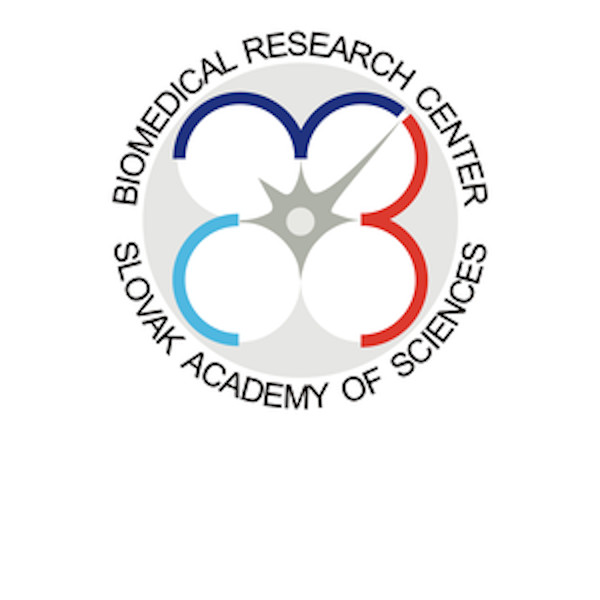
BMC SAS - SK
Core Partner, BSL3, Plant viruses, EU
Biomedical Research Center of the Slovak Academy of Sciences (BMC SAS) is currently the largest Slovak institution (>350 employees) devoted to basic and applied research in biomedical sciences. BMC SAS was officially established on January 1st, 2016 by merge of 4 formerly independent SAS institutes: Cancer Research Institute, Institute of Clinical and Translational Research, Institute of Experimental Endocrinology, and Institute of Virology.BMC SAS research is focused on understanding metabolic, neuroendocrine, autoimmune and cardiovascular disorders, cancer, and infections and especially their interrelationships when co-occurring in the same organisms. Global biomedical research of the 21st century faces these co-morbidities as one of the key challenges of the human health improvement and BMC SAS responds to this challenge through efforts strengthening interdisciplinary approaches. BMC SAS also has a large portfolio of patents related to diagnostics and therapy of cancer.Institute of Virology (IVSAS) is a prominent research institution of the Slovak Academy of Sciences (SAS). The IVSAS has a long-lasting tradition in the basic research and postgraduate education of PhD students. The IVSAS was founded in 1953 as a researchinstitution of the former Czechoslovak Academy of Sciences. The primary goal of the institute is to perform research in virology, microbiology, molecular and cell biology and oncology. Since January 1st, 2016, IVSAS, as one of the founding members, has become a part of the newly established BMC SAS. Within the BMC SAS, IVSAS continues to fulfill its original mission and, moreover, to develop close collaborative activities with the other three institutes to strengthen interdisciplinary and translational approaches and to improve research excellence.The institute has all important facilities for the research in virology. Most importantly, laboratory and animal facility with biosafety level 3 (BSL3) conditions are present and allow working with BSL3 viruses on cell cultures as well as in animal models. Research on arboviruses is one of the profiling topics of the institute since its foundation. The Department of Virus Ecology (DVE), which will contribute to the project, has been involved in epidemiological and pathogenic studies of tick-borne and rodent-borne viruses. The general interests of the group are ecology and transmission mechanisms of tick-borne arboviruses, development of anti-tick transmission blocking vaccines, genomics of zoonotic viruses, molecular epidemiology and pathogenesis of hantaviruses and other emerging zoonotic viruses.
The DVE research team group has made several original contributions to ecology and transmission of zoonotic viruses and contributed to elucidation of the non-viraemic transmission of tick-borne pathogens between co-feeding ticks and developed a TBEV-tick-mouse model which has been employed in several original studies on TBEV transmission as well as in transmission-blocking antivector vaccine development. Most recently, the group contributed to recent discoveries of hantaviruses in new hosts (shrews, bats, moles) and in various geographical regions (Africa, Central Europe, Back See coast area). The DVE team was a member of the very successful FP6 project VIZIER focused onstructural genomics of viral enzymes involved in replication. Most importantly, IVSAS is one of the founding members of the European Virus Archive (EVA). Within the EVA joint research activities, IVSAS was a workpackage leader of the Virus Production P3 workpackage which was focused on evaluation of virus production, quantification, and concentration techniques. Within EVAg, IVSAS was responsible for the development of invertebrate animal models, particularly those including ticks and tick-borne viruses.The group is led by Dr. Boris Klempa, a senior researcher internationally recognized particularly in the field of hantavirus molecular evolution and epidemiology who was in charge as the responsible scientist also for the VIZIER, EVA and EVAg projects. Other members of the team (postdoctoral fellows Sabina Havlikova, Martina Lickova, Monika Slavikova, technician Marta Siebenstichova) were all involved in the EVA and EVAg projects and are therefore highly experienced in the field of virus preparation, quantification, purification, long-term storage as well as molecular characterisation.
A group of plant virus research, belonging to the DVE since 2017 (the former Department of Plant Virology), is a specialised workplace having a many year tradition in the field of plant virus research. Members of research team has long-term experiences in study of variability and epidemiology of plant viruses and manipulation of viral genomes. A significant part of the activity outcomes represents the applications to the agricultural practice (detection tools). The Department collaborates closely with state and interest organisations (Central Control and Testing Institute in Agriculture, National Food and Agricultural Centre, Contact point of EFSA MARD) and several subjects from agricultural sector and individual growers. In the last years, the laboratory participated in the discovery and characterisation of several novel viral strains, e.g. Plum pox virus (strains PPV-CR, PPV-W, PPV-Rec), first identification of several viruses in the central European region (GPGV, GSyV-1) and development of diagnostic tools for detection of serious viral pathogens of cereals (WSMV), grapevine (GVA, GPGV, GSyV-1, GLRaV-1), fruit crops (PPV, ACLSV, LChV-1, LChV-2) and vegetables (WMV, ZYMV).This group is led by Dr. Miroslav Glasa, a senior researcher recognized mainly for the study of genetic diversity, diagnosis and molecular epidemiology of economically important plant viruses (viruses of fruit trees, grapevines, vegetables and cereals). His quality was recognised by the invitation to the EU 7FP project SharCo, where he exerted the position of the workpackage leader.In the past, he was the national leader of a cross-border project HUSK0901/1.2.1./0126, several bilateral projects (France, Italy, Germany) and number of national projects. The established cooperations with several top-ranking european and world laboratories resulted in several scientific publications and participation in consortia applying for EU grants. Other members of the team (senior scientist Zdeno Subr, postdoctoral fellows Lukas Predajna, Nina Sihelska) are highly experienced in the field of isolation, molecular characterisation of plant viruses, diagnosis, cloning to procaryotic and eucaryotic systems, expression of genes in plants etc.